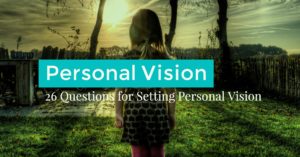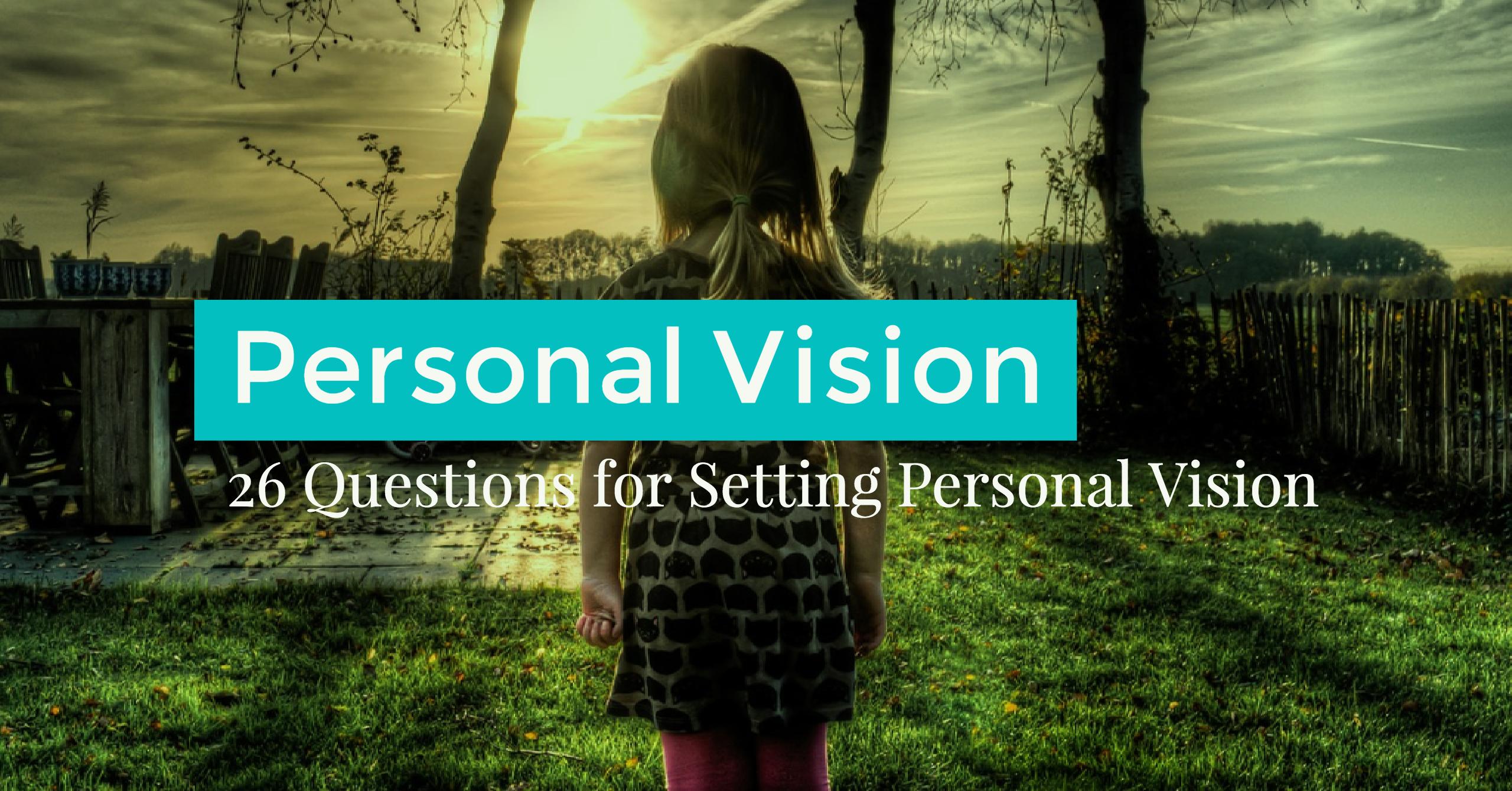
Vision boards surged in popularity for a few years and I often thought about creating one. In fact, I still see posts from local business groups inviting people to come develop their personal vision boards. I’ll admit I’m bit sceptical, the research suggests that vision boards are only effective if they are also supported by plans for how to achieve these goals.
I do believe having a personal vision is important and for my own life, things tend to “fall into place” when I’m operating with a vision. Having a vision for our lives allows us to put our personal power behind how we spend our time, the work we do and ultimately the level of satisfaction we have in our lives. A vision gives you a path to follow Developing a personal vision is about stepping back and determining what you really want so that you can take the time to achieve it. Your personal vision shouldn’t be a vague description of your daydreams, but instead, it should help to focus your time, attention and energy towards achieving those things you consider important.
The biggest challenge with developing a strong personal vision is answering hard questions and always looking to ask more.
Some suggested questions to get you started:
- What themes consistently run through your life?
- What are the five or ten things you enjoy doing the most?
- What makes you lose track of time?
- If you had to teach something, what would you teach?
- What do you care about the most or what values do you hold?
- What makes you feel good about yourself?
- Who inspires you?
- What do people usually ask you for help with?
- What does your ideal work embody?
- Do you have colleagues?
- Are your colleagues brainstorming and laughing?
- Who are they?
- Do you have any direct reports?
- Who do you report to?
- Do you work for yourself?
- What kinds of projects are you working on? Are they huge, small or a blend?
- What do you need to do each day in order for you to feel fulfilled?
- What skill sets have you acquired?
- What does your workspace look like?
- What strengths do you see in yourself?
- What challenges have you overcome in the past?
- What do you see as your work weaknesses?
- What do you see as your personal weaknesses?
- What weaknesses have others identified?
- What would you regret not doing if your life were ending?
- What strengths do others see in you?
Really dig into what makes you tick. The more questions that you pose, the more likely you are to come away with an effective personal vision. For instance, you may want to influence people, make their lives better. You might envision yourself up on stage or you might be out interacting with the public, but if you don’t want people prying into your personal life, you may want to think about being a professional speaker versus being a politician. If you want to be a professional speaker, what topics are you going to speak about?
Focus on the positive. Rather than building a vision based on running from those things that disturb you. Embrace those things that engage you.
The next challenge is to take your questions externally. Talk to people you respect and trust and ask them what they think would be required to make your vision a reality. Ask them what jobs they think might suit you. Once you have a clearer idea of what you want and what it takes to get there, you can start planning for it.
Related Posts:
